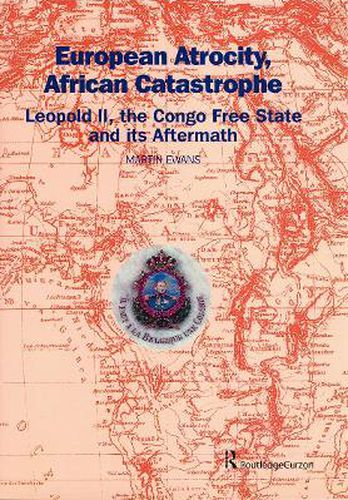European Atrocity, African Catastrophe: Leopold II, the Congo Free State and its Aftermath
Martin Ewans,Martin Ewans

European Atrocity, African Catastrophe: Leopold II, the Congo Free State and its Aftermath
Martin Ewans,Martin Ewans
In the late 19th and early 20th centuries King Leopold II of the Belgians established a colony in Africa, which, as the Congo Free State, became a byword for unremitting exploitation and widespread atrocities. King Leopold was a brilliant diplomatic strategist with almost unlimited ambitions, and while he acted partly out of patriotic motives, his main purpose was to create a financial enterprise’ able to generate wealth for himself and his dynasty. His success was achieved in equal measure by great personal charm, deceit and manipulation, cloaked by a veneer of humanitarian purpose - the propagation of Christianity, commerce and civilisation’, and the abortion of what was left of the slave trade. This book begins with a description of the diplomatic machinations behind the creation and expansion of the Congo Free State, which ended up in the hands of King Leopold as a result of his success in boldly playing the major European powers against each other, and through his funding of expeditions (led, among others, by Henry Morton Stanley) which raced into the African interior ahead of their competitors, often at great cost of lives both among the explorers and in particula among the unfortunate inhabitants they met along their way. The book goes on to explore the exploitation of the Congo Free State under the personal ownership of King Leopold, who never saw his vast African holdings but who did grow immensely wealthy from the revenue they provided him. The regime that generated this revenue was brutal in the extreme, and an emblematic image of it is the severed hands that its soldiers and agents were required to bring back as proof that they had used their weapons efficiently. Eventually, however, the regime collapsed when a humanitarian campaign, originating in Britain, was successful in persuading the Belgians that they could no longer turn a blind eye to the systematic oppression on which the Free State was based. The Belgian colony that replaced it in turn collapsed in 1960, leaving behind a new African nation whose prospects were compromised not only by the effects of almost a century of exploitation, but also by the almost complete lack of appropriate education and opportunities for administrative and professional experience provided by their colonisers. It is generally recognised among those who are concerned with Africa that the current plight of the continent is approaching the catastrophic. Partly the roots of the problem are historical, stemming from the exploitation and colonisation of the continent by European powers, and from the legacy of perceived superiority that has resulted from efforts towards self-justification on the part of colonising nations. An appreciation of the history of the relationship between Europe and Africa is indispensable to an understanding of the continent’s present predicament. Readers of this book will no longer be in any doubt about the nature of European colonialism in Africa and the lasting consequences of what is known as the Scramble for Africa’, one of the darkest episodes in colonial history.
This item is not currently in-stock. It can be ordered online and is expected to ship in approx 4 weeks
Our stock data is updated periodically, and availability may change throughout the day for in-demand items. Please call the relevant shop for the most current stock information. Prices are subject to change without notice.
Sign in or become a Readings Member to add this title to a wishlist.


